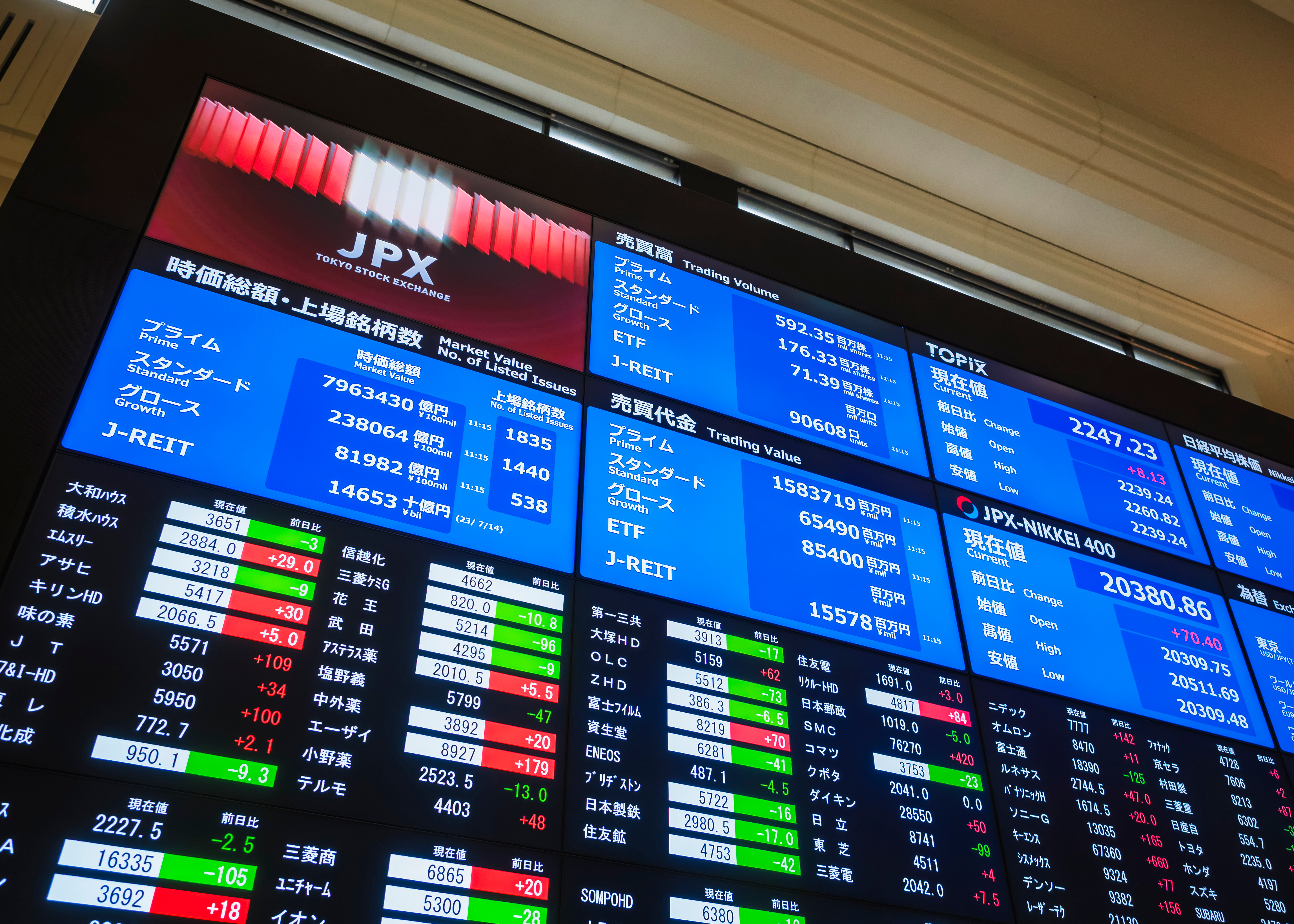IC Trading Asia Fundamental Forecast | 2 August 2024
What happened in the U.S. session?
Not only did unemployment claims print higher than its estimate of 236K, the reading of 249K was the highest since June 2023. Claims have remained elevated over the past nine weeks with the latest figures now trending above the 4-week average of 238K as well as the 12-week average of 233K. Higher claims with an upward trend indicate a potential softening of the U.S. labour market, which was also evident in Wednesday’s ADP employment report.
Moving over to PMI activity, the ISM Manufacturing PMI contracted for the fourth consecutive month as widely anticipated with sub-components such as new orders, backlogs, production and employment all contracted. Manufacturing activity entered deeper into contraction due to weaker demand as output declined. Employment took a big hit, dropping from 49.3 in June to 43.4 in July to mark its lowest reading since June 2020.
Following the above worst-than-expected macroeconomic data, the dollar index (DXY) reversed from 104.40 to fall as low as 104.09 overnight but it retraced to climb higher by the end of this session.
What does it mean for the Asia Session?
As Asian markets digest the latest monetary policy actions by the BoE as well as U.S. data, Cable remains under pressure as it fell under 1.2750 and continues to slide lower while the DXY hovers around 104.40. With the highly anticipated non-farm payrolls (NFPs) due at the beginning of the U.S. session, markets could tread cautiously for the first half of the day.
The Dollar Index (DXY)
Key news events today
BLS Employment Report (12:30 pm GMT)
What can we expect from DXY today?
The Bureau of Labor Statistics (BLS) will release its employment report for the month of July where we will get the latest figures on the non-farm payrolls (NFPs) as well as the unemployment rate. Employment growth in the U.S. has slowed noticeably as evident in Wednesday’s ADP report while NFP gains for the months of April and May were revised significantly lower. July’s estimate of 176K job gains points to a further slowdown while coming in significantly lower than the 12-month average of 218K.
After rising from 3.8% in March to 4.1% in June, the unemployment rate is expected to remain unchanged in July. However, given the elevated numbers in unemployment claims over the last eight weeks it would come as no surprise should this data point edge higher once again. Whatever the outcome, it is going to be an extremely volatile period for markets later today.
Central Bank Notes:
- The Federal Funds Rate target range remained unchanged at 5.25% to 5.50% for the eight meeting in a row.
- The Committee seeks to achieve maximum employment and inflation at the rate of 2% over the longer run and judges that the risks to achieving its employment and inflation goals continue to move into better balance.
- The economic outlook is uncertain, and the Committee is attentive to the risks to both sides of its dual mandate.
- Recent indicators suggest that economic activity has continued to expand at a solid pace while job gains have moderated, and the unemployment rate has moved up but remains low.
- In considering any adjustments to the target range for the federal funds rate, the Committee will carefully assess incoming data, the evolving outlook, and the balance of risks and does not expect it will be appropriate to reduce the target range until it has gained greater confidence that inflation is moving sustainably toward 2%.
- In assessing the appropriate stance of monetary policy, the Committee will continue to monitor the implications of incoming information for the economic outlook and would be prepared to adjust the stance of monetary policy as appropriate if risks emerge that could impede the attainment of the Committee’s goals.
- In addition, the Committee will continue reducing its holdings of Treasury securities and agency debt and agency mortgage-backed securities. Beginning in June, the Committee slowed the pace of decline of its securities holdings by reducing the monthly redemption cap on Treasury securities from $60 billion to $25 billion.
- The Committee will maintain the monthly redemption cap on agency debt and agency mortgage-backed securities at $35 billion and will reinvest any principal payments in excess of this cap into Treasury securities.
- Next meeting runs from 17 to 18 September 2024.
Next 24 Hours Bias
Weak Bullish
Gold (XAU)
Key news events today
BLS Employment Report (12:30 pm GMT)
What can we expect from Gold today?
The Bureau of Labor Statistics (BLS) will release its employment report for the month of July where we will get the latest figures on the non-farm payrolls (NFPs) as well as the unemployment rate. Employment growth in the U.S. has slowed noticeably as evident in Wednesday’s ADP report while NFP gains for the months of April and May were revised significantly lower. July’s estimate of 176K job gains points to a further slowdown while coming in significantly lower than the 12-month average of 218K.
After rising from 3.8% in March to 4.1% in June, the unemployment rate is expected to remain unchanged in July. However, given the elevated numbers in unemployment claims over the last eight weeks it would come as no surprise should this data point edge higher once again. Whatever the outcome, it is going to be an extremely volatile period for markets later today.
Next 24 Hours Bias
Weak Bullish
The Australian Dollar (AUD)
Key news events today
No major news events.
What can we expect from AUD today?
Downwards pressures remain intact for the Aussie as it reversed sharply from 0.6560 to dive towards 0.6500. This currency pair fell under this threshold to trade around 0.6500 as Asian markets came online – these are the support and resistance levels for today.
Support: 0.6465
Resistance: 0.6570
Central Bank Notes:
- The RBA kept the cash rate target unchanged at 4.35%, marking the ninth pause out of the last ten board meetings.
- Over the year to April, the monthly CPI indicator rose by 3.6% in headline terms, and by 4.1% excluding volatile items and holiday travel, which was similar to its pace in December 2023.
- The central forecasts published in May were for inflation to return to the target range of 2–3% in the second half of 2025 and to the midpoint in 2026 while there have been indications that momentum in economic activity is weak, including slow growth in GDP, a rise in the unemployment rate and slower-than-expected wages growth.
- Inflation is easing but has been doing so more slowly than previously expected and it remains high and the Board expects that it will be some time yet before inflation is sustainably in the target range.
- The path of interest rates that will best ensure that inflation returns to target in a reasonable timeframe remains uncertain and the Board is not ruling anything in or out.
- Next meeting is on 6 August 2024.
Next 24 Hours Bias
Medium Bearish
The Kiwi Dollar (NZD)
Key news events today
No major news events.
What can we expect from NZD today?
Demand for the dollar picked up overnight as the Kiwi reversed from 0.5981 to tumble under 0.5950. This currency pair was trading around 0.5935 at the beginning of the Asia session – these are the support and resistance levels for today.
Support: 0.5870
Resistance: 0.5980
Central Bank Notes:
- The Monetary Policy Committee kept the OCR unchanged at 5.50% for the eighth meeting in a row and agreed that restrictive monetary policy is reducing domestic demand and consumer price inflation.
- The Committee is confident that inflation will return to within its 1-3% target range over the second half of 2024.
- The decline in inflation reflects receding domestic pricing pressures, as well as lower inflation for goods and services imported into New Zealand while recent monthly Selected Price Indexes suggest weakening in some of the more volatile inflation components, while survey measures of cost pressures and pricing intentions have continued to decline.
- Non-performing bank loans and corporate insolvencies have increased from low levels in line with declining economic activity while bank credit growth also remains very subdued, in line with weakness in the domestic economy and low business and consumer confidence.
- Next meeting is on 14 August 2024.
Next 24 Hours Bias
Weak Bearish
The Japanese Yen (JPY)
Key news events today
No major news events.
What can we expect from JPY today?
Following yesterday’s BoJ’s rate hike on Wednesday, the yen strengthened significantly and continued to rally strongly as USD/JPY tumbled below the threshold of 150. This currency pair was trading around 149.70 as Asian markets came online – these are the support and resistance levels for today.
Support: 146.50
Resistance: 152.10
Central Bank Notes:
- The Policy Board of the Bank of Japan decided, by a 7-2 majority vote, to set the following guideline for money market operations for the intermeeting period and decided on the following measures:
- The Bank will encourage the uncollateralized overnight call rate to remain at around 0.25% while reducing its purchase amount of Japanese government bonds (JGB) by a unanimous vote.
- The Bank decided, by a unanimous vote, on a plan to reduce the amount of its monthly outright purchases of JGBs so that it will be about 3 trillion yen in January-March 2026; the amount will be cut down by about 400 billion yen each calendar quarter in principle.
- The year-on-year rate of increase in the CPI (all items less fresh food) is likely to be at around 2.5% for fiscal 2024 and then be at around 2% for fiscal 2025 and 2026.
- Meanwhile, underlying CPI inflation is expected to increase gradually, since it is projected that the output gap will improve and that medium- to long-term inflation expectations will rise with a virtuous cycle between wages and prices continuing to intensify.
- In the second half of the projection period, it is likely to be at a level that is generally consistent with the price stability target of 2%.
- Japan’s economy is likely to keep growing at a pace above its potential growth rate, with overseas economies continuing to grow moderately and as a virtuous cycle from income to spending gradually intensifies against the background of factors such as accommodative financial conditions.
- Next meeting is on 20 September 2024.
Next 24 Hours Bias
Weak Bullish
The Euro (EUR)
Key news events today
No major news events.
What can we expect from EUR today?
Demand for the dollar picked up overnight as the Euro retreated away from 1.0820 to fall under 1.0800. This currency pair was trading around 1.0785 at the beginning of the Asia session – these are the support and resistance levels for today.
Support: 1.0770
Resistance: 1.0850
Central Bank Notes:
- The Governing Council today decided to keep the three key ECB interest rates unchanged in July, following a 25 basis points cut in June.
- Accordingly, the interest rate on the main refinancing operations and the interest rates on the marginal lending facility and the deposit facility will remain unchanged at 4.25%, 4.50% and 3.75% respectively.
- Monetary policy is keeping financing conditions restrictive but at the same time, domestic price pressures are still high, services inflation is elevated and headline inflation is likely to remain above the target well into next year.
- While some measures of underlying inflation ticked up in May owing to one-off factors, most measures were either stable or edged down in June.
- The incoming information indicates that the euro area economy grew in the second quarter, but likely at a slower pace than in the first quarter.
- Services continue to lead the recovery, while industrial production and goods exports have been weak – investment indicators point to muted growth in 2024, amid heightened uncertainty.
- The Eurosystem no longer reinvests all of the principal payments from maturing securities purchased under the pandemic emergency purchase programme (PEPP), reducing the PEPP portfolio by €7.5 billion per month on average and the Governing Council intends to discontinue reinvestments under the PEPP at the end of 2024.
- The Council is determined to ensure that inflation returns to its 2% medium-term target in a timely manner and will keep policy rates sufficiently restrictive for as long as necessary to achieve this aim and is not pre-committing to a particular rate path.
- Next meeting is on 12 September 2024.
Next 24 Hours Bias
Weak Bullish
The Swiss Franc (CHF)
Key news events today
CPI (6:30 am GMT)
What can we expect from CHF today?
Inflation in Switzerland has remained under the SNB’s target of 2% for more than a year now with headline and core CPI easing to 1.3% and 1.1% respectively YoY in June. Inflationary pressures have dissipated completely and July’s estimate points to a decrease of 0.2% MoM – a result that should weaken the franc and potentially lift USD/CHF.
Central Bank Notes:
- The SNB eased monetary policy by lowering its key policy rate by 25 basis points for the second consecutive meeting, going from 1.50% to 1.25% in June.
- The underlying inflationary pressure has decreased again compared to the previous quarter but inflation had risen slightly since the last monetary policy assessment, and stood at 1.4% in May.
- The inflation forecast puts average annual inflation at 1.3% for 2024, 1.1% for 2025 and 1.0% for 2026, based on the assumption that the SNB policy rate is 1.25% over the entire forecast horizon.
- Swiss GDP growth was moderate in the first quarter of 2024 with the services sector continuing to expand, while manufacturing stagnated.
- Growth is likely to remain moderate in Switzerland in the coming quarters as the SNB anticipates GDP growth of around 1% this year while currently expecting growth of around 1.5% for 2025.
- Next meeting is on 26 September 2024.
Next 24 Hours Bias
Weak Bearish
The Pound (GBP)
Key news events today
No major news events.
What can we expect from GBP today?
As widely expected, the Bank of England cut its official bank rate by 25 basis points yesterday, bringing it down from 5.25% to 5.00% but noted that it will move cautiously in loosening monetary policy further until officials are more certain that inflation will remain subdued. The Committee noted that it expects headline inflation to fall and inflation expectations to converge toward the target.
Additionally, the Committee stated that restrictive policy is due to slack the GDP to below potential and continue softening the labour market, warranting a less restrictive policy stance. This currency pair was trading around 1.2720 as Asian markets came online – these are the support and resistance levels for today.
Support: 1.2620
Resistance: 1.2820
Central Bank Notes:
- The Bank of England’s Monetary Policy Committee (MPC) voted by a majority of 5-to-4 to reduce its Official Bank Rate by 25 basis points to 5.00% on 1st August 2024.
- Five members preferred to reduce the Bank Rate by 25 basis points to 5%, an increase of two from the previous meeting while four members preferred to maintain the Bank Rate at 5.25%.
- Twelve-month CPI inflation was at the MPC’s 2% target in both May and June but it is expected to increase to around 2.75% in the second half of this year as declines in energy prices last year fall out of the annual comparison, revealing more clearly the prevailing persistence of domestic inflationary pressures. Private sector regular average weekly earnings growth has fallen to 5.6% in the three months to May, and services consumer price inflation has declined to 5.7% in June.
- GDP has picked up quite sharply so far this year, but underlying momentum appears weaker. GDP had grown by 0.7% in 2024 Q1, with that strength appearing to have continued into Q2. Growth in the first half of the year had been stronger than expected at the time of the May Report.
- Business surveys had continued to point to underlying growth of around 0.3% per quarter, somewhat weaker than headline GDP growth. A margin of slack should emerge in the economy as GDP falls below potential and the labour market eases further.
- The Committee noted that it is now appropriate to reduce slightly the degree of policy restrictiveness but monetary policy will need to continue to remain restrictive for sufficiently long until the risks to inflation returning sustainably to the 2% target in the medium term have dissipated further.
- The Committee continues to monitor closely the risks of inflation persistence and will decide the appropriate degree of monetary policy restrictiveness at each meeting.
- Next meeting is on 19 September 2024.
Next 24 Hours Bias
Medium Bearish
The Canadian Dollar (CAD)
Key news events today
No major news events.
What can we expect from CAD today?
Demand for the dollar picked up yesterday as USD/CAD rebounded from 1.3795 to surge past 1.3850 overnight. This currency pair was edging towards 1.3900 at the beginning of the Asia session – these are the support and resistance levels for today.
Support: 1.3795
Resistance: 1.3900
Central Bank Notes:
- The Bank of Canada reduced its target for the overnight rate by 25 basis points to 4.50% while continuing its policy of balance sheet normalization.
- Canada’s economic growth likely picked up to about 1.5% through the first half of this year and is forecasted to increase in the second half of 2024 and through 2025.
- Overall, the Bank forecasts GDP growth of 1.2% in 2024, 2.1% in 2025, and 2.4% in 2026, reflecting stronger exports and a recovery in household spending and business investment as borrowing costs ease.
- CPI inflation moderated to 2.7% in June after increasing in May as broad inflationary pressures eased.
- The Bank’s preferred measures of core inflation have been below 3% for several months and the breadth of price increases across components of the CPI is now near its historical norm but shelter price inflation remains high, driven by rent and mortgage interest costs, and is still the biggest contributor to total inflation.
- These preferred measures of core inflation are expected to slow to about 2.5% in the second half of 2024 and ease gradually through 2025 and CPI inflation is expected to come down below core inflation in the second half of this year, largely because of base year effects on gasoline prices.
- There are signs of slack in the labour market with the unemployment rate rising to 6.4%, as employment continues to grow more slowly than the labour force and job seekers taking longer to find work. Wage growth is showing some signs of moderation, but remains elevated.
- The Governing Council’s future monetary policy decisions will be guided by incoming information and assessment of their implications for the inflation outlook.
- Recent data has increased the council’s confidence that inflation will continue to move towards the 2% target. Nonetheless, risks to the inflation outlook remain.
- Next meeting is on 4 September 2024.
Next 24 Hours Bias
Weak Bullish
Oil
Key news events today
No major news events.
What can we expect from Oil today?
After surging over 4% on Wednesday, crude prices reversed yesterday with WTI oil falling 1.4% to drop under the $78-mark for the second time this week. Fears of supply disruptions due to geo-political tensions in the Middle East were outweighed by signs of disappointing global fuel demand growth. Crude prices are set for a fourth straight week of decline – these are the support and resistance levels for today.
Support: 75.70
Resistance: 80.00
Next 24 Hours Bias
Medium Bearish





